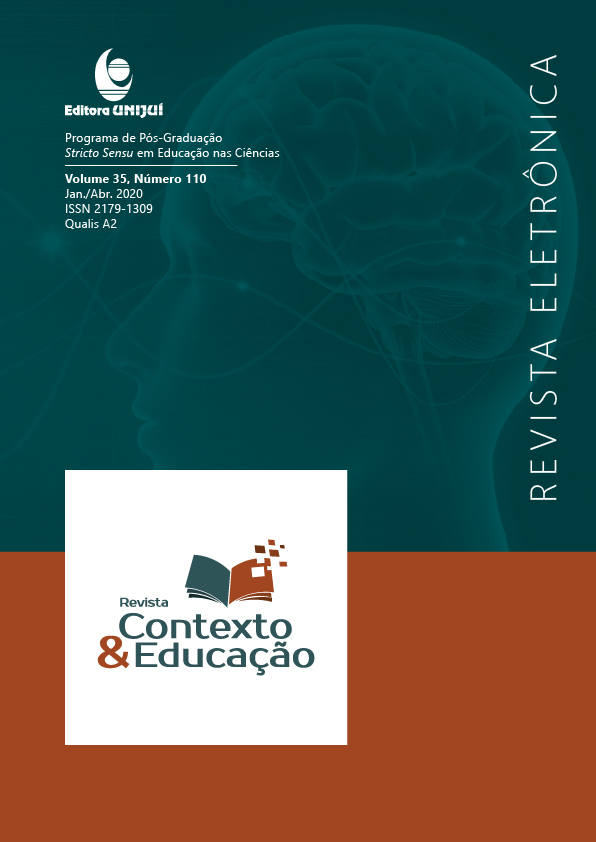ANÁLISE DE UMA SEQUÊNCIA DIDÁTICA SOBRE FERMENTAÇÃO: INTERAÇÕES DISCURSIVAS E A ELABORAÇÃO DO CONHECIMENTO
DOI:
https://doi.org/10.21527/2179-1309.2020.110.256-273Abstract
Este estudo teve como objetivo analisar as interações discursivas entre a professora e seus alunos em uma sequência didática sobre fermentação. A análise enfoca o processo mental construído pelo aluno durante a elaboração do conhecimento. Nessa pesquisa foram analisados episódios de uma sequência didática com alunos do 7º ano do Ensino Fundamental de uma escola particular do município de Maringá – Paraná. Os dados foram coletados durante as aulas no laboratório da escola, mediante gravações em áudio com um grupo de 10 alunos. Para a análise dos conteúdos de aprendizagem da sequência didática aplicada e das interações discursivas construídas, utilizou-se a estrutura analítica proposta por Zabala (1998) e as categorias idealizadas por Mortimer e Scott (2002) respectivamente, visto que nos dão suporte no sentido de compreender a importância do ambiente, do diálogo e das interações entre os indivíduos. Os resultados obtidos evidenciam os padrões discursivos durante as intervenções da professora, bem como foi possível identificar elementos potenciais e limitantes que favorecem ou impedem a elaboração do conhecimento por parte dos alunos, no sentido da re(estruturação) de suas ideias e na construção de novos significados.
Palavras-chave: Ensino de Ciências; Interações Discursivas; Sequência Didática
Downloads
Published
How to Cite
Issue
Section
License
By publishing in Revista Contexto & Educação, authors agree to the following terms:
All works are published under the Creative Commons Attribution 4.0 International License (CC BY 4.0), which allows:
Sharing — to copy and redistribute the material in any medium or format;
Adaptation — to remix, transform, and build upon the material for any purpose, even commercially.
These permissions are irrevocable, provided that the following terms are respected:
Attribution — authors must be properly credited, a link to the license must be provided, and any changes made must be indicated.
No additional restrictions — no legal or technological measures may be applied that legally restrict others from doing anything the license permits.
Notices:
The license does not apply to elements that are in the public domain or covered by legal exceptions.
The license does not grant all necessary rights for specific uses (e.g., image rights, privacy, or moral rights).
The journal is not responsible for the opinions expressed in the articles, which are the sole responsibility of the authors. The Editor, with the support of the Editorial Board, reserves the right to suggest or request modifications when necessary.
Only original scientific articles presenting research results of interest that have not been previously published or simultaneously submitted to another journal with the same purpose will be accepted.
Mentions of trademarks or specific products are intended solely for identification purposes and do not imply any promotional relationship by the authors or the journal.
License Agreement (for articles published from October 2025): Authors retain the copyright to their article and grant Revista Contexto & Educação the right of first publication.


